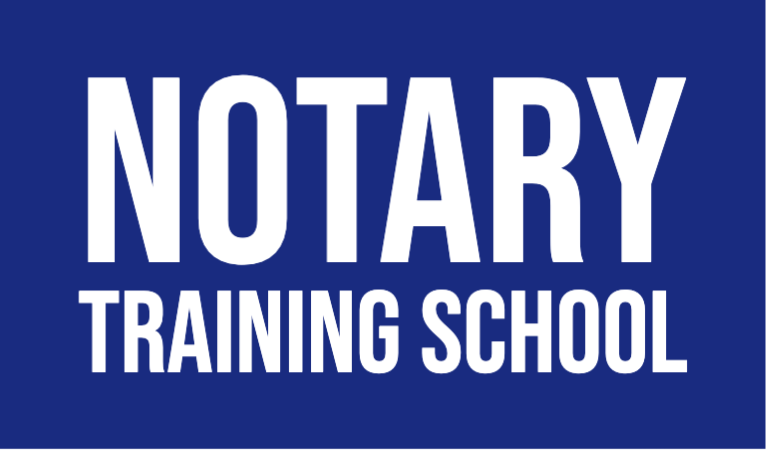Notary Public vs. Escrow Agent: Understanding the Differences and Overlaps

In the realm of legal and financial transactions, the roles of Notary Publics and Escrow Agents are crucial yet distinct. Both play vital parts in ensuring the legality, security, and proper execution of various agreements and transactions, particularly in real estate, banking, and legal services. Understanding these roles, their responsibilities, and how they complement each other is essential for professionals and clients alike. This article will explore the differences and overlaps between Notary Publics and Escrow Agents, providing a comprehensive guide for anyone interested in these professions.
Table of Contents
Defining a Notary Public

Role and Responsibilities
A Notary Public is an official appointed by the state government to serve as an impartial witness to the signing of important documents. Their primary responsibilities include verifying the identity of signers, ensuring that they are signing willingly and under their own free will, and confirming that they understand the contents of the documents they are signing. Notaries are also responsible for administering oaths and affirmations and certifying copies of certain documents.
Certification and Training Requirements
To become a Notary Public, individuals must complete a state-approved training course, pass an exam, and undergo a background check. The requirements can vary significantly from state to state. For instance, some states require a specific number of hours of education, while others have more lenient requirements. Despite these variations, the core responsibilities and ethical standards remain consistent.
Legal Authority and Limitations
Notaries have the authority to perform certain legal formalities but are not authorized to provide legal advice or services. Their role is limited to witnessing signatures and ensuring the legality of documents. This impartiality is crucial to their function, as they must not have any personal interest in the transactions they notarize.
Common Scenarios for Notary Publics
Notary Publics are commonly needed in real estate transactions, loan signings, legal affidavits, and other important legal documents. For example, they might witness the signing of a mortgage document, ensuring all parties involved are correctly identified and understand the agreement. Other scenarios include the notarization of power of attorney documents, wills, and trust agreements.
Defining an Escrow Agent

Role and Responsibilities
An Escrow Agent is a neutral third party responsible for holding funds, documents, and other assets on behalf of the parties involved in a transaction until all conditions of the agreement are met. The Escrow Agent ensures that all terms of the agreement are satisfied before disbursing funds or transferring assets. This role is pivotal in maintaining trust and security during significant financial transactions.
Certification and Training Requirements
Unlike Notary Publics, Escrow Agents often require more extensive training and certification, especially in states with stringent regulatory requirements. Many Escrow Agents have backgrounds in finance, law, or real estate. They must be knowledgeable about the legal and financial aspects of the transactions they oversee, ensuring compliance with all relevant laws and regulations.
Legal Authority and Limitations
Escrow Agents have the authority to manage and safeguard assets during a transaction but do not have the authority to provide legal advice. Their role is strictly fiduciary, focusing on the protection and proper disbursement of assets. They act as intermediaries, ensuring that all conditions of the transaction are met before finalizing the deal.
Common Scenarios for Escrow Agents
Escrow Agents are crucial in real estate transactions, business acquisitions, mergers, and other significant financial transactions. For instance, in a home sale, the Escrow Agent holds the buyer’s funds until all sale conditions are fulfilled, such as inspections and the transfer of the title. This ensures that both parties meet their obligations before the transaction is completed.
Key Differences Between Notary Publics and Escrow Agents

Function and Scope of Work
The primary difference between Notary Publics and Escrow Agents lies in their functions. Notaries act as impartial witnesses to document signings, verifying identities and ensuring that documents are signed willingly and with full understanding. In contrast, Escrow Agents manage and disburse funds and assets during transactions, ensuring that all conditions of an agreement are met before finalizing the transaction.
Certification and Legal Requirements
Notaries typically require state-specific certification and training, which can vary from state to state. Some states may have more stringent requirements, such as additional education or testing. Escrow Agents, on the other hand, often need more extensive financial or legal training and may have additional certification requirements, reflecting the complexity and responsibility of their role.
Interaction with Clients
Notaries interact with clients to verify identities and witness document signings. Their role is primarily one of verification and witnessing. In contrast, Escrow Agents work with both parties in a transaction, holding and managing assets until the agreement terms are met. They ensure that both sides fulfill their obligations before releasing funds or assets.
Situations Where Each is Preferred
Notaries are preferred for verifying document authenticity and witnessing signatures. Their role is crucial in ensuring that legal documents are signed correctly and that all parties understand the agreement. Escrow Agents are essential for managing and safeguarding funds and assets in transactions, particularly in real estate and large financial deals, where the proper handling of money and assets is critical.
Overlaps and Synergies

Scenarios Where Both Roles are Necessary
There are scenarios where the roles of Notary Publics and Escrow Agents intersect. For example, in real estate transactions, a Notary Public may be required to witness the signing of the mortgage documents, while an Escrow Agent manages the disbursement of funds and ensures that all conditions of the sale are met. This combination ensures both the legal and financial integrity of the transaction.
Complementary Roles
In such cases, the roles of Notaries and Escrow Agents complement each other. The Notary ensures the legality of the documents, while the Escrow Agent safeguards the financial aspects of the transaction. This collaboration ensures that all aspects of the transaction are handled with the highest standards of integrity and professionalism.
Benefits of Dual Certification
Professionals with both certifications can offer a more comprehensive service, increasing their marketability and potential for higher earnings. For instance, a professional who is both a Notary Public and an Escrow Agent can handle all aspects of a real estate transaction, from witnessing document signings to managing funds, providing a one-stop solution for clients.
Case Studies and Examples
Real Estate Transactions
In a typical real estate transaction, a Notary Public verifies the identity of the buyers and sellers and witnesses the signing of the deed. The Escrow Agent holds the buyer’s funds and ensures that the seller fulfills all conditions before releasing the funds. This dual role ensures that the transaction is both legally sound and financially secure.
Business Mergers
In a business merger, the Escrow Agent holds shares or assets in escrow until all merger conditions are satisfied, ensuring that both parties meet their obligations. Meanwhile, a Notary Public may be needed to witness the signing of legal agreements, verifying the identities of the parties involved and ensuring the documents are executed correctly.
Lessons Learned and Best Practices
These scenarios highlight the importance of both roles in ensuring smooth, legally sound transactions. Professionals can learn from these examples to understand best practices and the critical nature of each role. For instance, ensuring clear communication between Notary Publics and Escrow Agents can help prevent misunderstandings and ensure that all aspects of the transaction are handled correctly.
Career Pathways and Opportunities

Exploring Career Opportunities with Dual Certifications
Pursuing dual certification as a Notary Public and Escrow Agent opens up numerous career opportunities. Professionals can work in real estate, finance, legal services, and more. This dual certification allows for greater flexibility and the ability to offer comprehensive services to clients.
Industry Demand and Job Market Analysis
The demand for qualified Notary Publics and Escrow Agents is high, especially in states with robust real estate markets. Job security and growth potential in these fields are strong, making them attractive career options. Professionals with dual certifications are particularly valuable, as they can handle multiple aspects of transactions.
Tips for Expanding Your Professional Services
By obtaining both certifications, professionals can expand their service offerings, attract more clients, and increase their earning potential. Networking with other professionals in the industry, continuing education, and staying updated on the latest legal and financial regulations are also crucial for success.
Conclusion
Understanding the differences and overlaps between Notary Publics and Escrow Agents is essential for professionals in the legal, real estate, and financial sectors. Each role serves a critical function in ensuring the legality and security of transactions. Pursuing dual certification can significantly enhance career opportunities and professional growth. As the demand for these services continues to rise, now is an excellent time to invest in training and certification to become a Notary Public and Escrow Agent. Whether you are starting your career or looking to expand your professional services, mastering these roles will open doors to new opportunities and increased success.






Responses